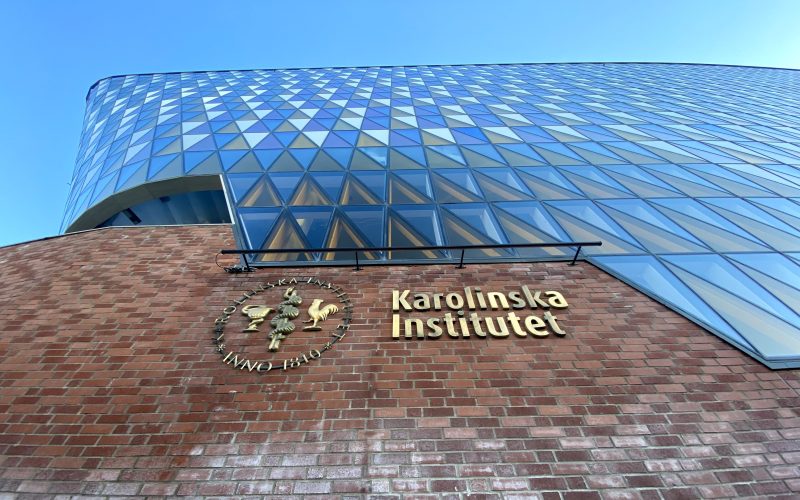
Looking back on the first year of Translational Physiology and Pharmacology
I can’t believe I’m saying this, but we are almost done with the first year of the Master’s in Translational Physiology and Pharmacology programme. It’s amazing how fast the time has flown by and we are literally halfway down the road to graduation already! That also means it’s a great moment to look back and reflect on what we’ve learned and done!
The start of something new
As this is the very first year of this programme, we had very little idea on how everything will look like or what is expected of us. So at the beginning, we just tried to go in with an open mind and give feedback on the different courses that we had as time went on. As we are quite an international group, the start was very much focused on getting us all to the same level. Then it became more about exploring the human physiology and different diseases for each organ system, plus the techniques that are used to study them ranging from the molecular levels to clinical trials.
Also initially the assignments were mostly done in groups and as time went on, it has moved more towards individual or smaller group projects. I think this makes sense, as we each have developed our skills during the year and are able to take on more responsibilities within each project. So there’s been a growth both in terms of the knowledge as well as other “soft skills”, which you learn without necessarily noticing.
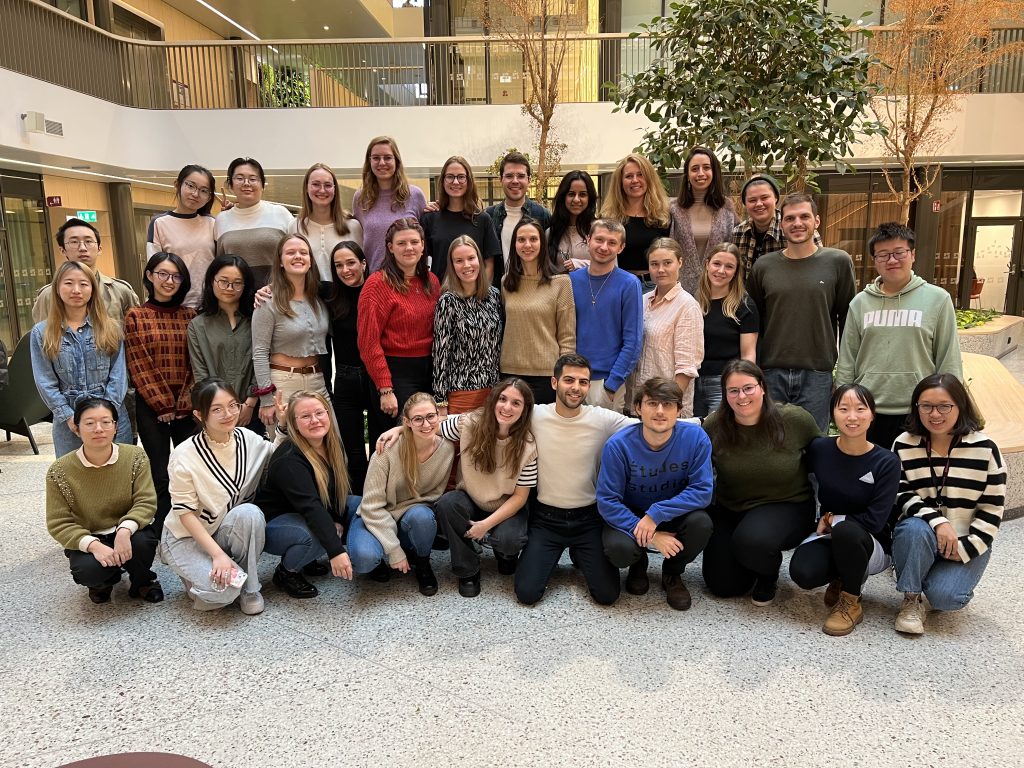
The challenges we’ve faced
I’ve talked a lot about the parts that I have liked and found useful throughout these blogs, but as always, there are some things that I wish would have been different. As it is the first year of the programme, I think this is to be expected, particularly as every single course is new not only to the students, but also to the teachers. Here are a few of these things that I have reflected on:
One of these is related to getting everyone to the same level, before we dive into more detailed biology. I think it makes sense to a certain extent to ensure that no one feels like they are in over their heads, but at the same time, it can feel a lot like repetition to other students. Of course, this is very individual and I’m just talking from my own experience, but I think that’s something to keep in mind when studying in an international programme such as this. And my advice when you feel like you already know most of what is covered in a lecture, is to actively participate by asking more detailed questions to enhance your learning experience as the teachers are usually very open to discuss more and they are aware that everyone has a different background.
Another challenge that we’ve faced is related to the assessment of course work. As you might know, the grading system is Pass, Pass with distinction or Fail, so these are quite wide categories compared to other systems with letters or numbers. For some courses, there have been discussions on how exams or assignments are put together i.e. what questions are asked and how the points are divided. Also we discussed how big of a part each assignment should be of the final grade for the course, as we usually don’t have one final exam, but several smaller assignments throughout the course, which were mandatory, but not always contributing to the final grade, particularly for the Pass with distinction grade. I see this as more of a short-term problem that should be adjusted already for next year’s class based on our feedback and discussions with the teachers.
The fun we’ve had along the way
All in all, this has truly been a great year! But not everything will fit in a single blog post, so I’ve chosen some highlights:
- Picnic at Hagaparken during the Introduction Week: a tradition we are looking to continue with the new students coming in August
- International dinners, where everyone brings something inspired by their home country
- Epic snowball fight and building snowmen for the first time ever for some of our classmates
- Christmas baking, where again we had flavours from different countries
- Seeing the Northern Lights at Hagaparken on a random Sunday evening: you always have to be on the look out in the winter months
- Skating at Kungsträdgården: one recommendation is to go in the morning as the evenings tend to be super busy
- Floorball matches on Thursday evenings
- Baking some Swedish classics such as kardemummabullar (cardamom buns) and semla with our special recipe (the secret is to include lemon curd in the semla?)
- Day trip to Uppsala: it’s a great place to visit for a weekend, or if you have the time on the Walpurgis night
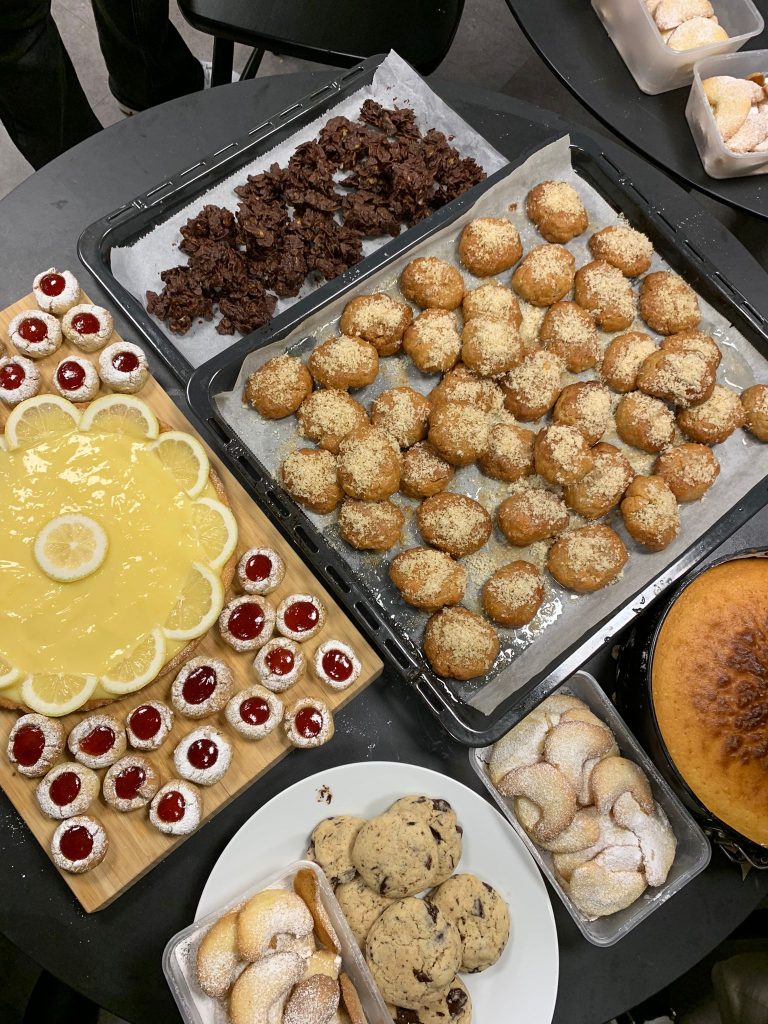
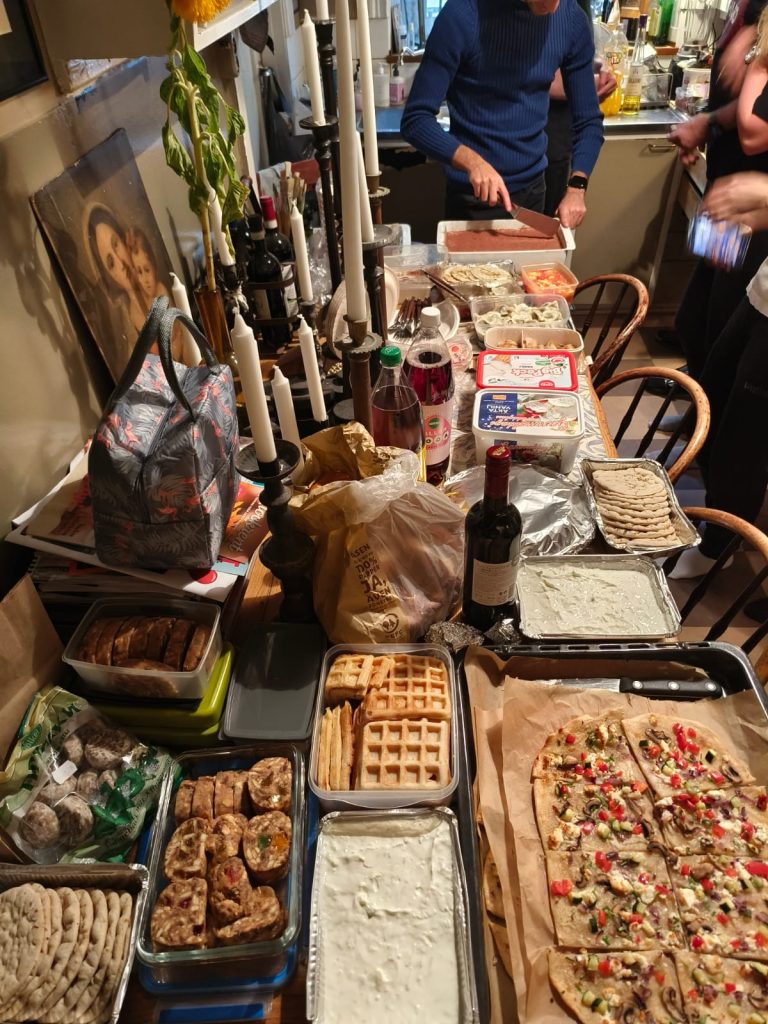
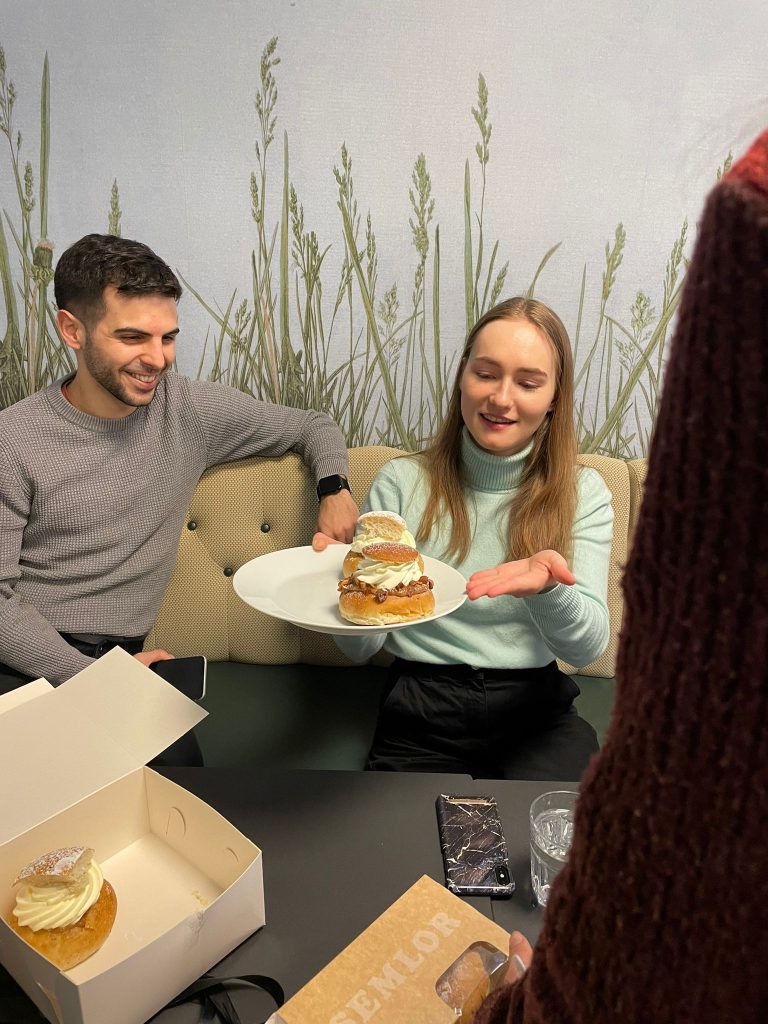
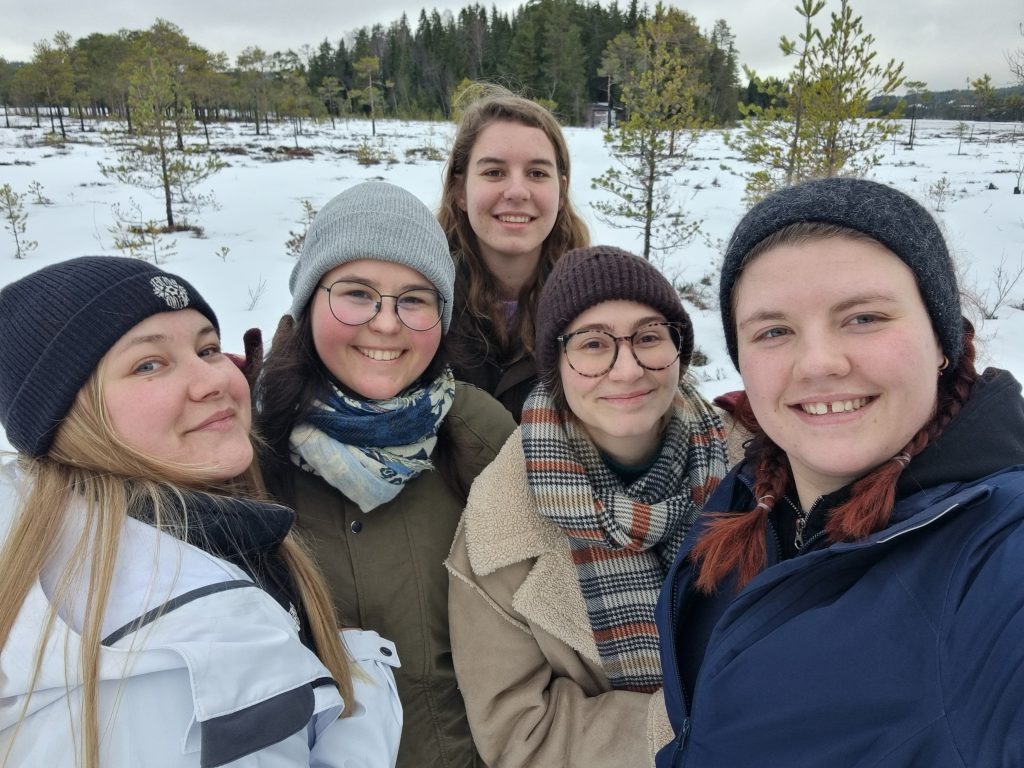
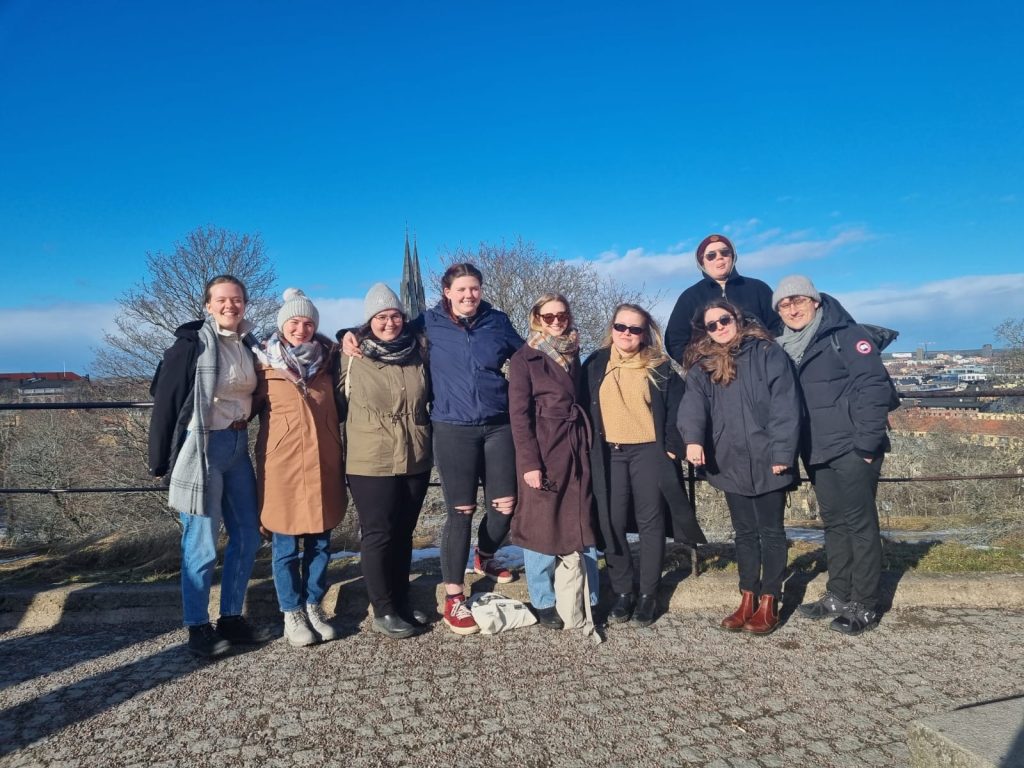
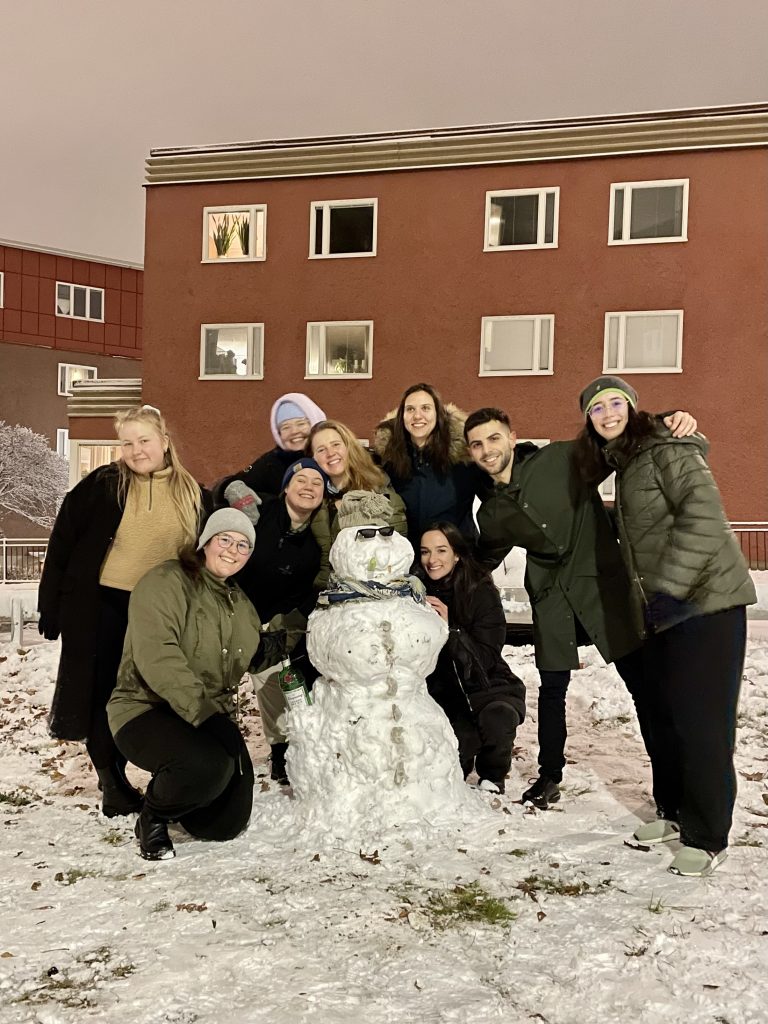
What’s on the horizon
And that’s the first year done! Now it’s time to look ahead towards the third semester and the master’s thesis. The third semester is split roughly into two parts, the first one is focused on elective courses and the second one includes two short-term research projects that can be combined into one longer project. Like other students, I’m also in the process of connecting with labs to set up research projects for the third semester as well as for my master’s thesis. This process can be fairly quick or take some more time, it really depends on the people and places you contact. But from my experience the end of second semester is the time when most of my classmates have started reaching out to labs.
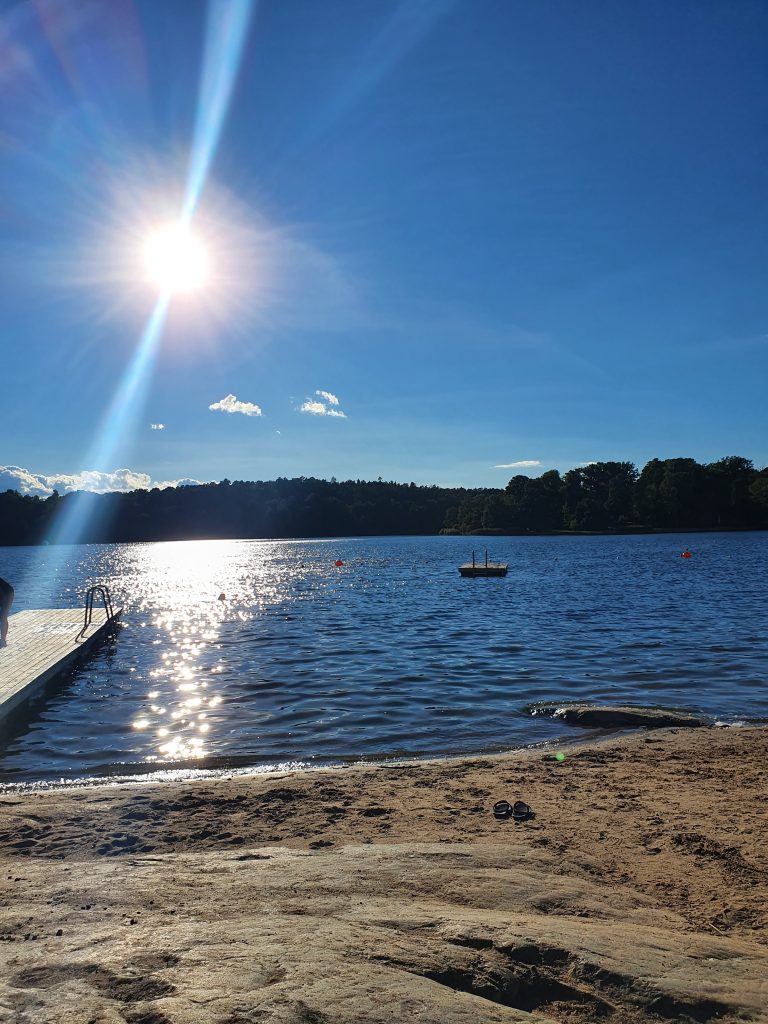
Now that we have one school year under our belts, I can say that I’m glad that I chose KI and this programme. Even though there were certain aspects of the courses that I thought could have been done differently, as a whole, this experience has given me a lot in terms of making new connections, expanding my knowledge, and helping me figure out what I want to do after graduation.

Karolina - Translational Physiology and Pharmacology
I am Karolina and I am a digital ambassador and a blogger for the Master’s Programme in Translational Physiology and Pharmacology here at KI. I was born and raised in Estonia, but for the past five years I have lived in the UK where I studied biomedical sciences with a focus on pharmacology. Outside of school I like baking with friends as well as doing water sports. When the weather starts to get warmer, I look forward to kayaking through Stockholm's world-famous archipelago.

0 comments